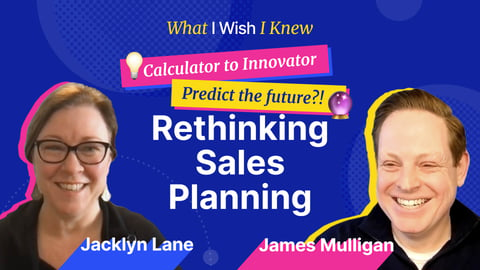In today's rapidly changing business landscape, the ability to adapt your compensation strategy is paramount. As seen in a recent report by the Sales Management Association, the pace of change is accelerating, and evolving your plans has become less of an annual task and more of a consistent, ongoing process. Sales compensation, in particular, serves as a bellwether indicator of management effectiveness in decision-making and change management.
This blog explores the crucial role of AI-driven insights, dynamic incentive flexibility, and rapid plan agility in crafting an adaptive compensation strategy.
The Imperative for Adaptive Compensation
Sales Evolution in a Dynamic Market
Last year, only 24.3% of salespeople exceeded their quota. However, the challenge lies in the fact that sales behavior often lags behind the rapid changes in the market.
Daily shifts in product offerings, market dynamics, and competitive landscapes necessitate continuous adaptation in compensation plans. The increasing volume and speed of these changes have made it challenging for sales leaders and compensation administrators to keep up.
Currently, as found in the recent Sales Management Association report, only 40% of sales organizations rate their overall go-to-market planning as effective.
The Impact of Lagging Compensation Plans
Consequences of Lagging Behind Market Changes
As plans struggle to evolve at the necessary pace, the behavior shift in sales lags behind market opportunities. Sellers find themselves focused on core offerings that pay predictably, missing out on promoting the latest innovations.
Ad-hoc changes and the inability to implement plan adjustments quickly result in higher-cost SPIFFs to entice sellers, complicating the analysis of performance and business impact.
The Challenge of Lagging Compensation Plans
As businesses grapple with the accelerating pace of change, the inertia of traditional compensation plans poses a significant challenge. Organizations that fail to adapt their compensation strategies to market shifts may experience a decline in employee motivation and engagement, leading to a detrimental impact on overall performance.
The delayed response to market changes not only affects the behavior of sales teams, but also hampers the organization's ability to capitalize on emerging opportunities. Companies with lagging compensation plans are more likely to miss out on key innovations and trends, putting them at a competitive disadvantage.
Unravelling the Complexity of Lagging Compensation Plans
Navigating the intricacies of lagging compensation plans involves understanding the root causes of the delay. Rigid legacy systems and manual processes contribute significantly to the sluggishness in adapting compensation strategies. These challenges hinder organizations from responding swiftly to market dynamics and adopting a proactive approach.
The inability to unravel this complexity can result in a domino effect, where delayed adjustments in compensation plans lead to a cascading impact on employee morale, customer satisfaction, and overall business performance.
Hesitancy to Change
Overcoming Data Incompleteness and Traditional Modelling Skepticism
While the need for adaptive compensation strategies is apparent, organizations often grapple with hesitancy in implementing changes. A common challenge is the reliance on incomplete or outdated data, hindering decision-makers from gaining a comprehensive understanding of performance metrics and market trends.
Furthermore, there is often a lack of faith in traditional compensation modelling methods, which may not adequately capture the complexities of a rapidly evolving business landscape. Traditional models, reliant on historical data and linear projections, can fall short in predicting future trends and understanding the impact of emerging market dynamics.
Overcoming this hesitancy requires a shift towards embracing advanced analytics and predictive modelling tools. Organizations can leverage technologies like machine learning algorithms, such as Monte Carlo, to analyze vast datasets in real-time, providing a more accurate and nuanced understanding of performance indicators.
The importance of data accuracy and the evolution of modelling techniques in fostering confidence in compensation strategy adaptations cannot be understated.
The report by the Sales Management Association highlights that organizations excelling in sourcing accurate data are 8 times more effective in their go-to-market planning, including sales compensation.
With many teams pulling data from a variety of sources, and sometimes pulling data from legacy systems which can hold years and years of data that hasn’t been maintained, identifying a single source of truth can be a hurdle.
However, it’s a hurdle that’s critical to overcome, as accurate data is the foundation to fast and accurate decision making – as well as fuelling powerful tools, such as AI.
Solutions for Adaptive Planning
AI-Driven Insights and Adaptive Planning
To address the challenges posed by the accelerating pace of change, it’s critical to leverage a solution rooted in AI-driven insights and adaptive planning. Evolving your compensation plans is no longer an annual task; it's a consistent and ongoing process. As such, having the ability to quickly and accurately adjust plans will be instrumental in the success of any sales or go-to-market teams.
Learn about how leading go-to-market teams are leveraging AI and other technologies to effectively manage change and empower sellers by watching The Evolution of Organizational Technology and Its Impact on the Sales Force.



